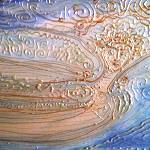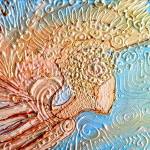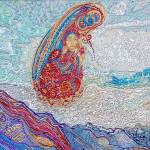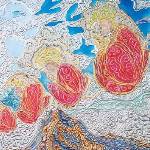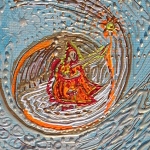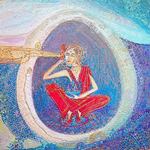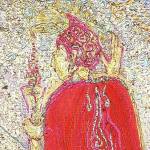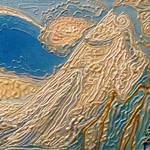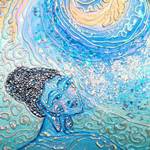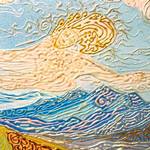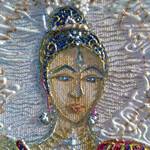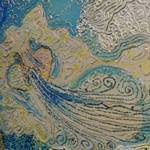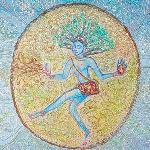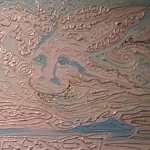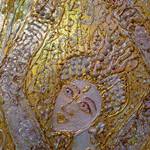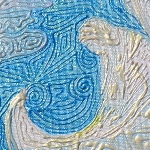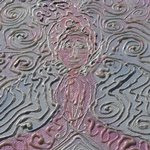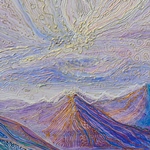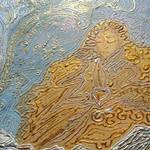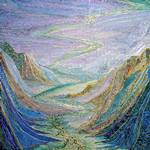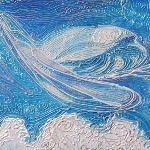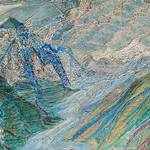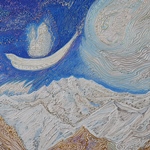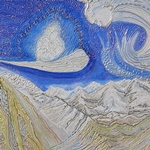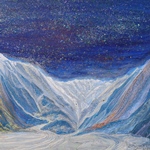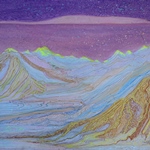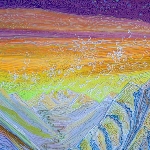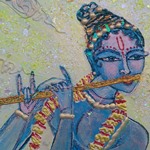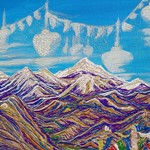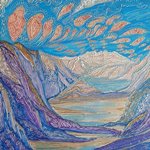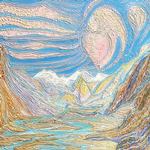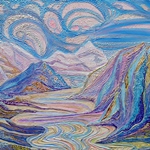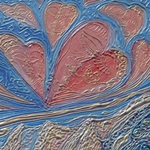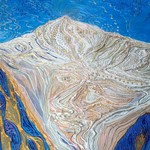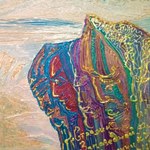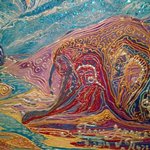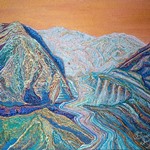Paintings
There Heaven walks the Earth
"There Heaven walks the Earth..." - is a series of paintings about mountains and legends; about the beautiful world of high mountains and amazing tales about the life of the high spirit of saints and gods. Through a combination of mountain terrain and amazing events unfolding in the clouds, the closeness of heaven and earth is emphasized at special points of intersection of beauty and faith.
The series began in the summer of 2018, after another Himalayan voyage through the valleys of Kinnaur, Spiti, Pin, Lahul and Kullu, along the rivers Sutlej, Spiti and Chandra, through the Kunzum and Rotang passes. Before that, there was already a journey from Dharmasala to Naggar and a detailed study of Kullu Valley, along the Beas and Parvati rivers. In 2019, the route went from Ladakh via Chang-la to Chantang, to Pangong Lake, then to the Nubra Valley along the Shyok River, back to Leh via Khardong La, to Zanskar via Pensi La and to Srinagar via Fotu La and Zoji La.
The views and feelings on the way inspired these paintings, along with the development of another new author's technique - a combination of tempera painting with acrylic graphics, using mica, vermiculite and other crystals. In October 2019, the series was presented at a solo exhibition at the Roerich estate in Naggar, Kullu, at an international festival dedicated to the 145th anniversary of N.K.Roerich.
A few words about the places that are mainly depicted in the paintings. The mountain valleys of Spiti, Lahul, Ladakh and Zanskar are located in northern India, between the Great Himalayan, Ladakh, Zanskar and Pir Panjal mountain ranges. About 45 million years ago, when Hindustan collided with Asia, the Himalayas emerged from the rocks of the Hindustan plate, the Zanskar Range rose from the bottom of the ocean, and the Ladakh Range emerged from the molten granite that broke out when the plates collided.
These valleys have long been harsh wiwh small population, at an altitude of 3-4 km and with sharp changes in temperature it is difficult to grow plants and farm. You can get there only through passes up to 5-6 km high, many of which are still covered with snow all winter and spring. Despite this, people have lived there for more than a thousand years. The most important trade roads for centuries passed through the valleys, including one of the routes of the Great Silk Road.
In ancient times, trading ways were the only communications between peoples and the states, the scientists and monks moved by them, spreading knowledge, science and religions. Located between India and Tibet, these lands saw many pundits and saints, Hindu and Buddhist. Some, like the great Jovo Atisha, were passing through here, others, like Guru Padmasambhava, the great yogis of Naropa, Tilopa and Milarepa, meditated here in secluded places and caves, while others, like Atisha's disciple Dromtonpa and the great translator of Buddhist texts Rinchen Zangpo, founded monasteries here.
Years and centuries passed but and these valleys remained an island of relative stability in the turbulent world around them. They were hardly touched by the industrial and social revolutions. People here still maintain subsistence economy and pray to the same gods and saints, and in winter they go to visit their relatives on foot a hundred kilometers along the frozen riverbed.
The pure energy of the majestic mountains and untouched nature makes one feel the closeness of this earth to Heaven. Buddhist temples and stupas, Hindu sanctuaries keep the energy of their great founders, Lamas and saints. The great Russian painter, philosopher and scientist N.K.Roerich, who traveled in these lands and depicted them in his paintings, wrote: "... it is felt that more can be discovered in these places and can give lost milestones of many ways.

